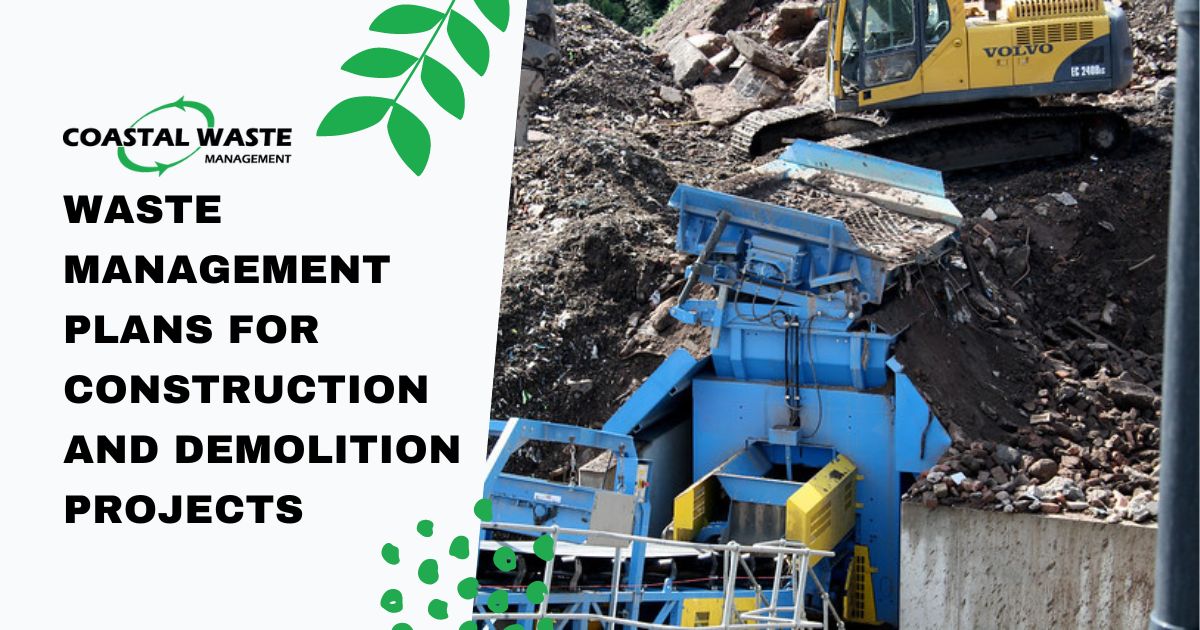
When we construct or demolish buildings, we create a heap of waste. It’s crucial to handle this waste in the right way to safeguard the environment and ensure our projects are sustainable.
Let’s explore how waste management plans for construction and demolition (C&D) projects function, why they’re significant, and how we can put them into action effectively.
Waste Management Plans for C&D Projects
Waste management plans for C&D projects in Australia aim to reduce waste, reuse materials as much as possible, recycle what we can, and minimise what goes to landfills. These plans involve figuring out what kinds of waste we’ll produce, hiring the right people to manage it, and making sure everyone knows their responsibilities.
We also focus on ways to avoid making too much waste in the first place, following government rules to promote recycling and sustainability.
Demolition Waste Management National Rules and Laws
The Australian Government has guidelines called the National Waste Policy to guide how we handle waste. Following these rules helps us reduce our environmental impact.
Construction sites have to follow these rules and get audited to make sure they’re doing things right. Guidelines like the UNSW Construction and Demolition Waste Management Guideline give us more tips on how to cut down on waste and meet national goals for reducing garbage.
What’s Happening in Western Australia
In Western Australia, they’ve set goals to make less waste and recycle more. They’ve made plans to boost markets for recycled materials and improve how we manage waste in demolition projects.
Guidelines, such as the Demolition Waste Management Plan Guidelines, give us clear steps on handling waste from demolition jobs. Companies like Coastal Waste Management help by recycling waste materials from construction and demolition, following all the local rules.
How to Put Plans into Action
Waste management plans spell out how we’ll recycle, reuse, or get rid of waste from our projects. They’re important for any new building or demolition work.
Companies like Coastal Waste Management collect and recycle waste, making sure we’re not harming the environment. We can also use new technology and work together to find better ways to deal with waste.
Benefits of Doing Things Right
When we manage waste well, we help the environment, save money, and meet legal requirements. It also helps our reputation and makes our communities happier.
Sustainable waste practices mean we’re taking care of our planet and making sure there’s less trash for future generations to deal with.
Embracing Sustainable Practices for a Brighter Future
Managing waste is crucial in construction and demolition. By reducing, reusing, and recycling materials, we can make our projects greener and more sustainable.
Remember, every bit of effort counts! Following the rules and using smart strategies like ordering a skip bin by Coastal Waste Management in Perth can make a big difference.
Let’s work together to build a future where waste is managed responsibly, and our planet thrives. In summary, handling waste in construction and demolition projects is vital for our environment and our communities.
By following simple guidelines, like using services such as a skip bin by Coastal Waste Management in Perth, we can make a big impact and create a cleaner, healthier world for everyone.
Related Articles:

